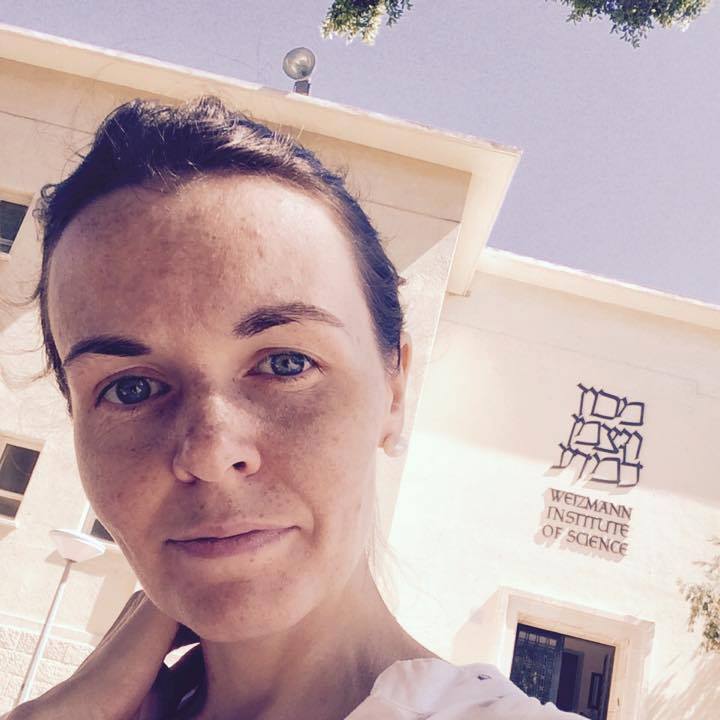‘I Have Always Respected the University’s Comprehensiveness and Inclusiveness’

Throughout July, students of the HSE International Summer University are studying Russian History and Behavioural Economics. The courses will take place in an online format—something that seemed unthinkable for a summer programme before the COVID-19 pandemic. Recent years have shown that online learning is a unique opportunity for students from all over the world to study with leading HSE University professors from the comfort of their own homes.
This summer, the course ‘A Glimpse of Russian History’ brought together a group of budding history scholars to look at Russian history from a new perspective with their lecturer Oleg Morozov from HSE Faculty of Humanities. This course introduces students to the social, cultural, and political history of Russia from the Muscovite Tsardom in the sixteenth century to the collapse of the Soviet Union in 1991. Since its launch at the Summer University, the course ‘A Glimpse of Russian History’ has enjoyed great popularity among history buffs, not least because studying the specifics of the Russian nation's historical development is an integral part of analysing the current socio-political situation not only in Russia, but on the entire Eurasian continent.

Rong Yuan, Leiden University, the Netherlands
‘HSE University has long been my dream university for many academic and personal reasons. I have always respected the university’s comprehensiveness and inclusiveness, and I have long admired the works of HSE University scholars. The course ‘A Glimpse of Russian History’ relates closely to my ongoing and past research experiences and interests. I enjoy the sincere and open-minded conversations in class and find all the reading materials Professor Morozov provided thought-provoking. The course design fits perfectly with my expectations to learn Russian history from a local perspective, and I’m genuinely grateful for this tremendously wonderful study experience at the Summer University.’

Oleg Morozov, Senior Lecturer of the course ‘A Glimpse of Russian History’
‘I am happy that the course "A Glimpse of Russian History" took place this year. As part of this course, foreign students study the political, social and cultural history of Russia in English, from the emerging ancient Slavic state to the collapse of the Soviet Union in 1991. I have been teaching at the HSE International Summer University since 2018 and I always discover a lot of new things working with students from other countries. When planning the course, I try to maintain a reasonable balance between texts, music and films, making lectures and seminars as informative as possible and at the same time easy to learn, because for many students, these classes are their first introduction to Russian history. I like how as part of our discussions, they naturally compare historical events in Russia with those in their respective countries. During such discussions, I myself learn a lot. I like to complete my course with educational walks around Moscow or a visit to a museum, but this has been third time we’ve had to work online without being able to meet in person. Despite this, I am glad that our work continues and that students from different universities from all over the world come to HSE University to gain new knowledge.’
‘Behavioural Economics’ is another course that will take place at this year’s the Summer University. Having a deep and broad understanding of behavioural patterns, improving one’s decision-making approaches, and making better decisions are essential skills in modern life whether you are a consumer, a producer, or a politician. This is why ‘Behavioural Economics’ classes are consistently popular with students from all over the world regardless of their academic programme track at their home university. This year, the course will be taken by students in regional and global studies, economics and business.

Nadezhda Shilova, Associate Professor of the course ‘Behavioural Economics’
‘It's such a pleasure to restart summer lectures. Summer students are usually the ones who are the most willing to study and work, so it's always inspiring to work with them. They are active, they are "present", they are interested in the topic, they do all the homework, and they offer good ideas and answers that let me think over some topics again. I'm glad we are back, and I'm already thinking of possible new courses for next year!’
Oleg Morozov
Senior Lecturer, School of History
Nadezhda Shilova
Associate Professor, Vysokovsky Graduate School of Urbanism
See also:
'The Past Always Remains a Part of the Present'
Sergey Medakin began his career as an art historian by studying Sabaton, a Swedish power metal band, and is now focusing on German studies. In this interview with the HSE Young Scientists project, he discusses his favourite Soviet and Western political cartoons, the scientific conference he founded, and the relevance of the past in modern culture.
‘We Cannot Understand the Modern Ideological Confrontation without the Accusations that Emerged during the Lausanne Process’
Rainer Matos Franco, from Mexico, defended his PhD thesis with honours at HSE University this June. In his dissertation, Rainer Matos Franco examines the history of anticommunism in Europe during the 1920s. The HSE News Service spoke with Rainer and his academic supervisor, Tatiana Borisova, about the significance of the Lausanne Process for the Cold War and contemporary history, the opportunities provided by HSE University for international PhD candidates, and the challenges of working with a vast database of historical sources.
How the Telephone Conquered the World. Episode Ten: 'Number, Please?'
The history of the invention of telephony reads like a captivating detective novel, but even more intriguing are the events that contributed to the worldwide adoption of this technology. In this series of columns on IQ.HSE, Anton Basov, HSE Faculty of Computer Science editor, discusses how telephones have become an integral part of our everyday life. The final episode of the series recounts how men were unable to cope with telephone operator jobs and were replaced by tall and polite young women. However, as telephone networks expanded, the role of the intermediary became unproductive, eventually rendering the switchboard operator profession obsolete due to automation—not the first nor the last time such a thing has happened. As for Alexander Graham Bell, he used the earnings from inventing the telephone to promote science, educate people about the world around us, and pursue new inventions.
How the Telephone Conquered the World. Episode Nine: Big Connections
The history of the invention of telephony reads like a captivating detective novel, but even more intriguing are the events that contributed to the worldwide adoption of this technology. In this series of columns on IQ.HSE, Anton Basov, HSE Faculty of Computer Science editor, discusses how telephones have become an integral part of our everyday life. The ninth episode of the series explores the development of the first long-distance, interstate, and transatlantic telephone lines, which suddenly made people thousands of kilometres away feel as close as if they were in the same room together.
How the Telephone Conquered the World. Episode Eight: The Russian Field of Experiments
The history of the invention of telephony reads like a captivating detective novel, but even more intriguing are the events that contributed to the worldwide adoption of this technology. In this series of columns on IQ.HSE, Anton Basov, HSE Faculty of Computer Science editor, discusses how telephones have become an integral part of our everyday life. The eighth episode of the series recounts how Russia first adapted the telephone for military and logistical purposes, created a shell company headed by a nominal executive for reselling the rights to Western competitors, and intensively developed communication infrastructure in the country's two capitals, making such progress that Vladimir Lenin insisted on capturing and maintaining control of telephone exchanges at all costs.
How the Telephone Conquered the World. Episode Seven: German Efficiency
The history of the invention of telephony reads like a captivating detective novel, but even more intriguing are the events that contributed to the worldwide adoption of this technology. In this series of columns on IQ.HSE, Anton Basov, HSE Faculty of Computer Science editor, discusses how telephones have become an integral part of our everyday life. The seventh episode in the series recounts the story of German bureaucrats, who proved to be the most astute in Europe by ensuring effective telephony first for themselves and subsequently for all major cities in Germany. However, even there, the government's dominant role over the free market slowed down the adoption of the new technology.
How the Telephone Conquered the World. Episode Six: The Telephone's Misadventures in France
The history of the invention of telephony reads like a captivating detective novel, but even more intriguing are the events that contributed to the worldwide adoption of this technology. In this series of columns on IQ.HSE, Anton Basov, HSE Faculty of Computer Science editor, discusses how telephones have become an integral part of our everyday life. The sixth episode of the series recounts events in France when the private owner of the telephone network was compelled to sell it to the government at a knockdown price, and the impact it had on the development of communications in the country. Spoiler alert: the impact, naturally, was detrimental.
How the Telephone Conquered the World. Episode Five: From the US Free Market to Conservative Britain
In this series of columns on IQ.HSE, Anton Basov, HSE Faculty of Computer Science editor, discusses how telephones have become an integral part of our everyday life. The fifth episode of the series chronicles the early experiences of the telegraph and telephone in Great Britain, shedding light on the challenges they faced, and explores the adverse impact of excessive government regulation and nationalisation on the evolution of telecommunications.
Peacocks, Pepper, and Petrol: The Early History of Imports from Asia
Petroleum for equine care, wood oil for lighting, sandalwood for Easter celebrations, and lemons and olives for entertaining unexpected guests. Russian monasteries often used these and other eastern goods in the period leading up to and during the reign of Peter the Great. Analysing their account books leads to a revision of the traditional assumptions about the primary consumers of oriental goods in Russia. These consumers, in addition to the royal and aristocratic circles, included monastery estates, as discussed in the paper ‘“Three altyns worth of petroleum…”: Oriental goods in Russia at the second half of the 17th and early 18th century’ by historian Arthur Mustafin of HSE University. Based on his paper, IQ.HSE explores the types of goods that were shipped from the East to Russia in the latter half of the 17th to the early 18th century, including the routes and purposes of these shipments.
How the Telephone Conquered the World. Episode Four: David the Start-up Versus the Corporate Goliath
The history of the invention of telephony reads like a captivating detective novel, but even more intriguing are the events that contributed to the worldwide adoption of this technology. In this series of columns on IQ.HSE, Anton Basov, HSE Faculty of Computer Science editor, discusses how telephones have become an integral part of our everyday life. The fourth episode of the series recounts the story of the fledgling start-up's confrontation with hordes of patent trolls and its subsequent victory in a full-blown corporate war against the largest telecommunications company of the late 19th century.


